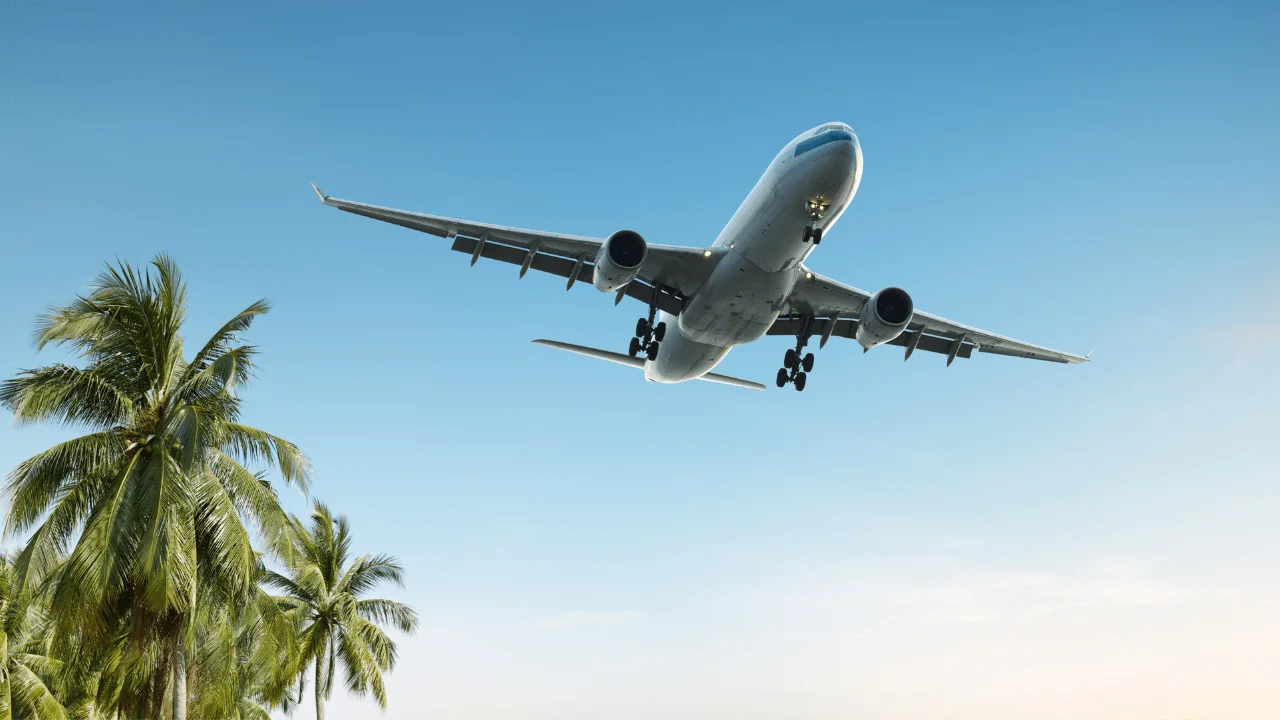
If you recently gave birth, you might be eager to travel so family and friends can meet your baby, especially if you don’t live close to loved ones. For most new moms who have had few – if any – childbirth complications and are recovering well, not-too-strenuous travel a few weeks after a vaginal delivery or a c-section is likely fine with your healthcare provider’s okay. That said, many providers and pediatricians may recommend that you try to avoid any non-essential travel (especially air travel) with your baby until they’re at least three months old.
The first few weeks after giving birth are a big transitional period, full of physical and emotional postpartum recovery, unpredictable sleep schedules, breastfeeding challenges, hormonal changes, and more – adding travel to the mix may actually slow down recovery and get in the way of the groove you’re trying to establish with your newborn.
Postpartum complications, such as blood clots, hemorrhage, and infection are rare, especially after the first week or two after delivery, while c-section recovery setbacks like wound infection and incision separation are most likely to occur within the first few days after delivery. That said, if you had an episiotomy or any perineal tearing during your vaginal birth, you may experience discomfort and pain for several weeks, which travel could exacerbate. And a c-section is a major surgery, and it takes several weeks to fully recover.
Taking care of a newborn is a joy, but it can also be a whirlwind of sleep deprivation and unexpected change. You can’t control every situation, like a family emergency, for example, but as you think about traveling after delivery, be sure that you’re assessing your own health. And let your provider know about your plans before you take off.
If you’re considering travel and bringing your newborn along, it’s important to remember that babies younger than three months are at a higher risk for complications from illnesses such as the flu and RSV, and are too young to have received all of their essential immunizations.
Waiting until your baby has received some of their vaccinations after a few months may help ease some anxiety around traveling and reduce their risk of severe illness. If you choose to travel sooner, talk to your baby’s pediatrician about your plans – they may be able to offer advice on how to keep your baby healthy and safe during travel.
Tips for travel after having a baby
Regardless of your mode of travel, take it easy and try to stick to the same healthy habits you observed during pregnancy. Discuss your travel plans with your provider before you go, and always know where you can obtain medical care on the road if you need it.
During the trip, drink plenty of fluids to stay hydrated. Wear comfortable clothes and get up regularly to stretch your legs and walk around a bit (every hour or so is ideal) to prevent blood clotting, for which you’re at an increased risk for up to three months after childbirth. If your pregnancy was complicated, be sure to carry a copy of your medical records.
If you’re traveling with your baby, make sure to bring their medical records, as well as an emergency checklist with their pediatrician’s number, contact info for family members, and a list of medications your baby takes, as well as their allergies, if they have any known ones.
Plan your trip in advance and make sure where you’re staying has a comfortable and safe place for your baby to sleep, like a bassinet, play yard, or a crib, if you’re not planning on bringing your own. Blackout curtains, changing tables, and easy access to a bathroom can also help make your life easier during the newborn stage.
When can I drive after giving birth?
Regardless of whether you had a vaginal delivery or a c-section, experts recommend you avoid driving for at least one or two weeks, or until getting behind the wheel no longer feels painful or difficult. One small study found no differences in driving capability between new moms who were 2-3 weeks postpartum and 5-6 weeks postpartum.
Avoid driving completely if you’re taking narcotics for relieving pain, and consult your healthcare provider before you get back behind the wheel. Your baby can travel by car right away – with a proper infant car seat, of course – but know that longer road trips may be tougher, as newborns need to be fed often and seen by their pediatrician frequently after birth.
Read more about


Add a Comment